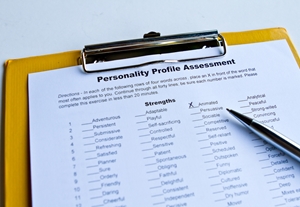 Did you know your brand has a personality? At least, it should. And it’s better to define it before someone else does. A given brand’s personality is a set of human characteristics that are relatable to your target audience – just like a person. It’s an important way marketers can control how customers view brands and organizations.
Did you know your brand has a personality? At least, it should. And it’s better to define it before someone else does. A given brand’s personality is a set of human characteristics that are relatable to your target audience – just like a person. It’s an important way marketers can control how customers view brands and organizations.
Defining a brand’s personality does require some thought on how you want to be seen. It should be a reflection of your organization’s personality as well as your ideal customers. If they are young, edgy and urban, then you will market to them differently than you would to affluent, settled suburbanites.
Successful brand personalities also frequently tap into our fantasies, whether to connect us with the fierce athletes of Nike or the adventuresome rebels of Harley Davidson.
How today’s brands reach customers
The process should be founded on an understanding of consumer behavior. The customers you’re trying to reach have some things in common regardless of the brand, including a stronger voice than ever and a heightened awareness of marketing. To reach them, Advertising Age explained that major brands of today are talking to customers directly. You can do this not just by thinking of a series of adjectives but by visualizing a purpose for your brand. A purpose – even one as vague as “Just Do It” – will help guide your behavior in social media channels and your interactions with customers in general.
Use your imagination
For an organization to determine what kind of person it would embody, The Financial Brand, an online publication on retail bank marketing, suggests doing personification exercises. If the person were sitting next to you, do you imagine a man or a woman? What is the person’s age and appearance? Let your mind wander. Details like education level and sitting position will start to take shape.
For those of you who could use a jumpstart, try brainstorming typical personality traits. They don’t necessarily need to define your brand and may include:
• Outspoken versus reserved
• Predictable versus surprising
• Playful versus serious
• Conservative versus progressive
• Formal versus casual
Don’t be afraid to include less flattering terms. The Financial Brand reports that you’ll achieve more marketing success with a more accurate picture of who you are.
Take a holistic approach
Your brand’s personality will eventually dictate visual designs, auditory cues like music, and online user experiences around a brand. For instance, a young-at-heart brand would use bright colors and snappy design with fun interactions at user touch points, Entrepreneur explained. From advertising to tweets, all of your marketing language throughout a campaign should combine the personality and purpose you’ve defined.





